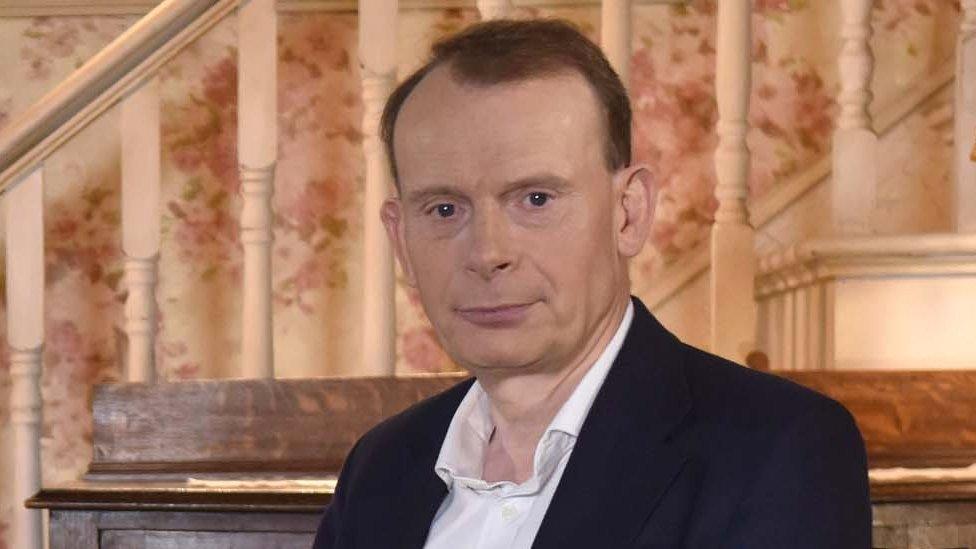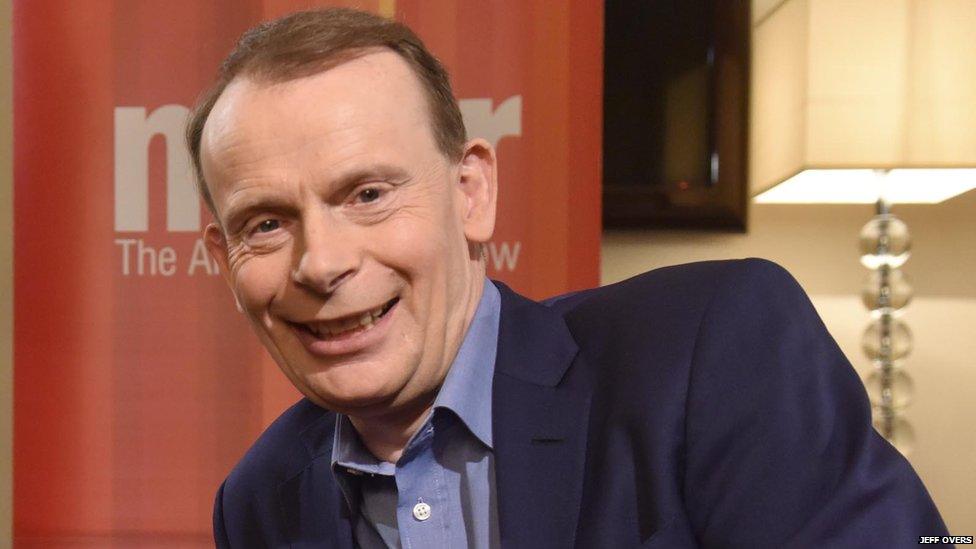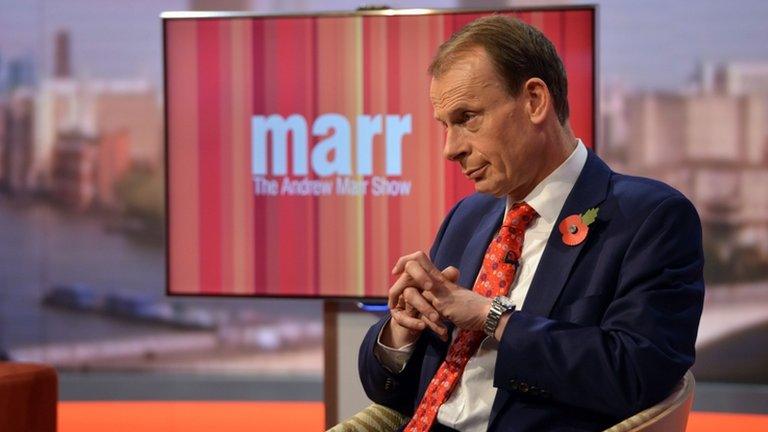Andrew Marr receives new treatment following 2013 stroke
- Published

Andrew Marr suffered a stroke in January 2013
Andrew Marr has said he is not yet sure whether a new treatment he received in Florida has helped to alleviate some of the effects of his stroke.
The BBC presenter suffered a stroke in January 2013 and took a nine-month break from his Sunday morning show.
Writing in The Spectator, external earlier this week, Marr revealed his plans to travel to Florida for a new treatment.
Marr said the procedure involved having the drug injected into the spinal fluid while hanging upside down.
'Lucky fellow'
"I can't run or cycle or swim, and I walk very unsteadily and slowly," he wrote.
"I drop things and take ages to get dressed. It's a bit of a sod. So I'm inclined to give new treatments a go."
He added: "I'm not complaining too much. I can work, drink, see friends, paint, listen to music and irritate my children like before. I'm a lucky fellow."
But, Marr said, he is still semi-paralysed on the left side of his body four years after the stroke, which has encouraged him to try the new treatment.
He explained: "There is a new drug called etanercept, an anti-inflammatory developed for arthritis but now being used in a clinic north of Miami to treat stroke survivors."
He wrote the column before travelling to Florida and has now received treatment.
On Wednesday, he told The Telegraph, external it was still too early to see whether the treatment had had the desired effect, and said results would become clearer over time.

Does the treatment work?
This is an unproven treatment for disability after stroke, which has not yet been tested in clinical trials.
This means there is no national or international evidence that it is safe and that it works.
Etanercept is normally used to treat arthritis.
In the case of strokes, the drug has to be injected into the patient's spine when they are upside down so that it gets to the central nervous system as quickly as possible.
Small improvements in movement have been observed in a small number of cases after treatment.
But earlier this year, the American Academy of Neurology said the evidence was "insufficient" to say whether there was any benefit from the treatment.
And it said doctors should advise patients that the treatment could have serious side effects.

Follow us on Facebook, external, on Twitter @BBCNewsEnts, external, or on Instagram at bbcnewsents, external. If you have a story suggestion email entertainment.news@bbc.co.uk, external.
- Published5 December 2016

- Published9 May 2016

- Published9 January 2013
